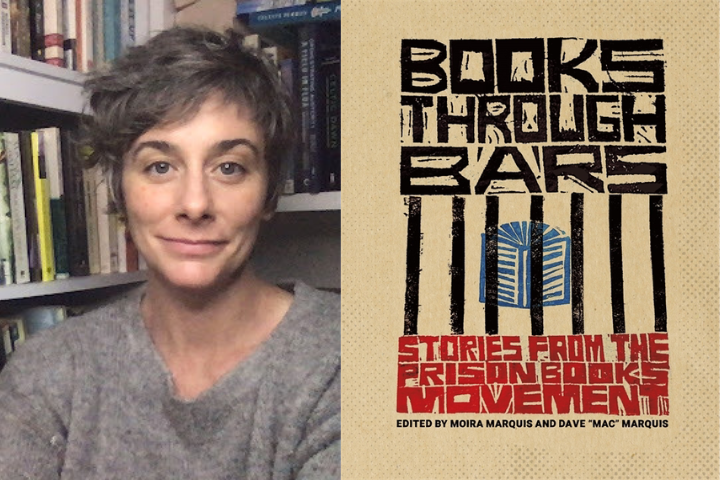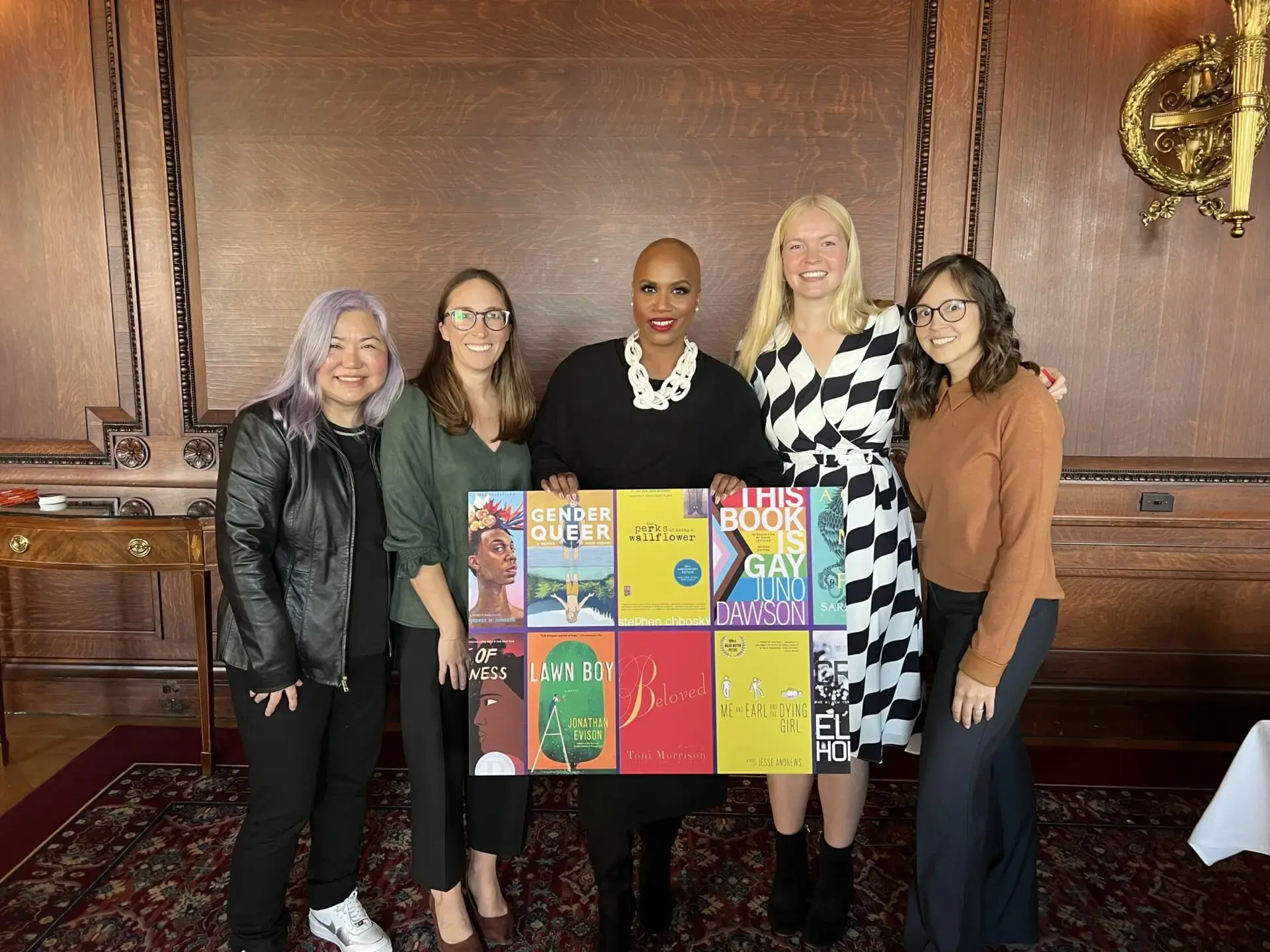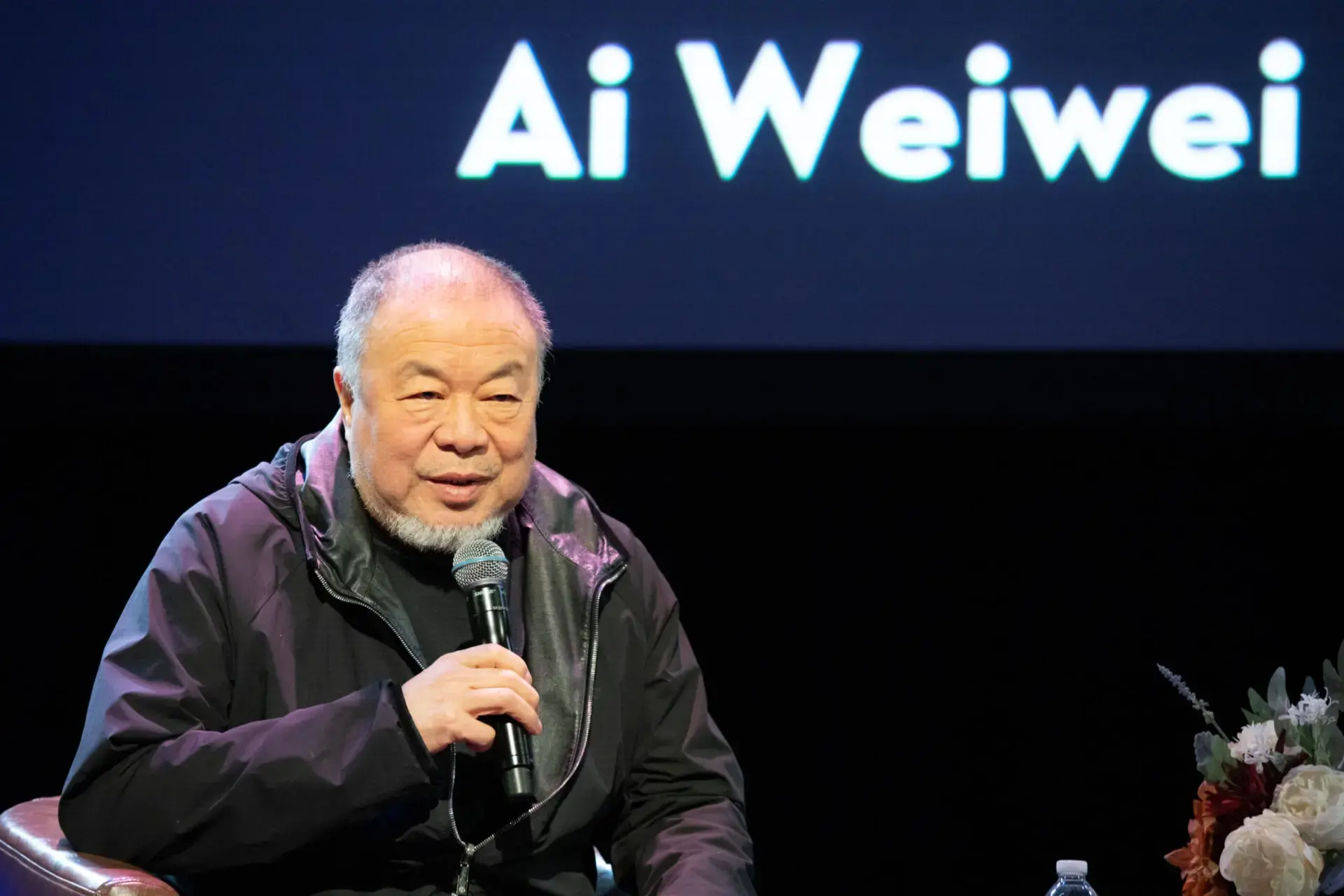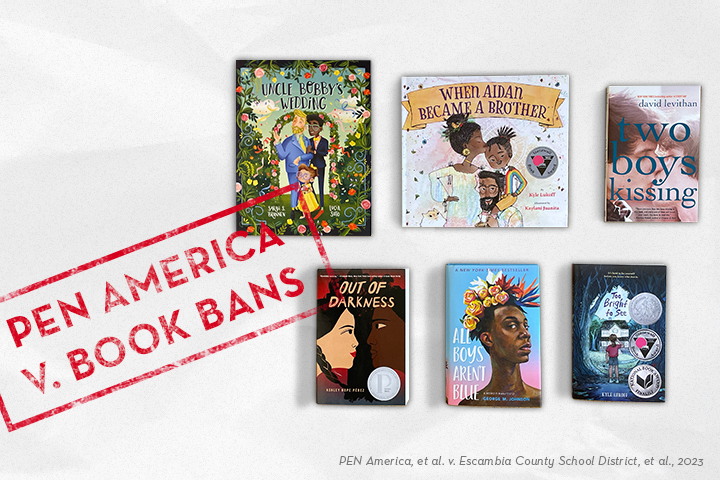To the PEN America Community:
We respect all those who have communicated with us, publicly and privately, about the current Gaza war, and recognize the profound stakes and pain involved. As an organization that champions dissidents, we also recognize the importance of dissent in our own ranks. We applaud writers using their voices to contribute to public discourse. In light of recent feedback and criticism, including in the form of a letter released last week, we are writing with the hope of moving forward together with as many writers as possible, in service of our mission.
We begin our response by making clear our sorrow and anguish at the suffering endured by so many Palestinian civilians in Gaza, including authors, poets, artists, journalists, and others who have paid with their lives brutally and unfairly. We stand alongside the writers of Gaza who are struggling to survive. The ravages of the current war, from October 7 to the present, are unfathomable and will linger as a stain on humanity for generations to come. We are devastated by warfare that has stolen lives, silenced voices, and left innocent people shattered, terrified, displaced, starving, and denied their freedom.
This letter sets out our organizational principles, addresses several factual issues, and then outlines a series of steps in fulfillment of our mission.
PEN America’s mission is to unite writers and their allies to celebrate creative expression and defend the liberties that make it possible. At its heart is our support for individual writers who are targeted by governments based upon the content of their work. We are guided by principles, including those contained in the PEN Charter. These principles enjoin us to promote understanding and mutual respect between nations and people through the medium of writing and literature, and to ensure that “membership of PEN is open to all qualified writers, editors, and translators who subscribe to these aims, without regard to nationality, ethnic origin, language, color or religion.” We interpret these to the best of our ability, recognizing that within our big tent of writers will be a wide range of viewpoints, including on what these principles mean and demand. Those debates have persisted throughout PEN America’s 102-year history, intensifying in wartime. We do not attempt to compel consensus and we respect that writers will follow their consciences.
In the course of our work in recent months, we have been accused of antisemitism, anti-Palestinian bias, unfairness toward Israel, double-standards, moral equivocation, and complicity in genocide. Some feedback is public, some private, and some has gotten personal. As a community, we are aghast witnessing the brutal toll of human suffering. Beyond that, there are sharply divergent views on questions of deep consequence. For some, referencing nuance is moral betrayal. For others, failure to do so is unconscionable. As an organization open to all writers, we see no alternative but to remain home to this diversity of opinions and perspectives, even if, for some, that very openness becomes reason to exit. The PEN Charter commits us to “dispel all hatreds and to champion the ideal of one humanity living in peace and equality in one world.” In our view, this mandate obliges us to persist in the effort to bridge across political, cultural, and ideological differences. That is the purpose for which the PEN World Voices Festival was founded in 2005 by Salman Rushdie and others. It is the reason we feel bound to remain an organization open to all, and to resist alignments that would impair such openness.
Our work on the war in Gaza has been extensive. We have focused on three areas: advocacy, support for writers, and convening writers and members of the public for dialogue and exchange. In October, to educate ourselves and inform our work, we held a series of webinars with our staff on Israel and Palestine, convened by Imam Abdullah Antepli of Duke University. We have issued more than 35 statements since October on a wide range of topics related to the war and its reverberations. Many have dealt with the suppression of Palestinian and pro-Palestinian speech on campuses and in our culture, issues where we bring organizational expertise and believe we have the ability to make a difference. These have included statements opposing suspending Students for Justice in Palestine, rejecting institutional efforts to punish speakers and professors, urging measures to address Islamophobia without impairing free speech, calling out facially neutral policies adopted in response to pro-Palestine speech, opposing government efforts to curtail speech critical of Israel, criticizing cancellations of appearances, awards, exhibitions and films, and condemning doxxing. We have also spoken out forcefully about the imperative to combat antisemitism while respecting free speech, and against efforts to silence culture, including Jewish and Israeli voices.
Palestinian writers are firmly encompassed in our commitment to the freedom to write. We have offered direct, confidential assistance to individual Gazan writers and artists in need. We have condemned threats to free expression and the flow of information, supported and mourned individual writers and artists, criticized Israeli policies that impair free expression, decried the catastrophic destruction of culture in Gaza, called for the protection of journalists including in the face of irresponsible rhetoric by the Israeli government, spotlighted lost lives, and amplified calls for greater access for journalists inside Gaza.
We have focused our efforts in areas where we believe our voice or involvement can make a difference. We approach every conflict – Syria, Iraq, Afghanistan, Ukraine, Gaza – with fresh eyes, factoring in the complexities, what we may be able to usefully contribute, our constituencies, our partners and our principles. When we take positions, it’s never on the side of a state, an army, or a political group, but rather the cause of freedom of expression and the conditions that make it possible.
In the past, on issues that have divided our constituency, we have found that one of the most useful roles that PEN America can play is to convene difficult conversations that cut across deep differences. We devoted our Annual General Meeting in December, 2023, to a discussion of the war and its impact, including Palestinian, anti-Zionist and Jewish voices. We were planning a substantial focus on the conflict at this year’s PEN World Voices Festival, including a panel tentatively entitled “The Palestinian Exception to Free Speech” that was to have included several of the writers who have now told us they will not take part in the Festival. In total we had five Palestinian writers scheduled to take part in multiple events across what we hoped would be a robust program elevating discussion of the conflict at this pivotal time. We are well aware that, for some, these efforts are insufficient or off the mark, too little or too late. We have strived throughout our work to reflect our principles; that effort is ongoing and never complete. As the crisis has evolved, so has our perspective and work; it will continue to do so.
We have continually affirmed that we “respect the right of writers to control the publication and distribution of their work” including taking part in boycotts if they so choose. We have consistently opposed efforts to penalize those taking part in the boycott of Israel, notwithstanding our own longstanding position that academic and cultural boycotts are not in keeping with our mission to use culture as a bridge across divides. We recognize that boycotts take on varied forms, with distinct targets, and see no contradiction between opposing boycotts ourselves, and defending the right of others to engage in them. PEN America believes firmly that the positions of governments must not be projected on individual writers by virtue of their nationality. In keeping with the PEN Charter, we are firm in the conviction that writers’ voices matter precisely because of their independence of thought and action.
We regret that an author’s talk we convened in Los Angeles resulted in the removal of writer Randa Jarrar under circumstances we have previously addressed in detail. Having worked with Ms. Jarrar and defended her against efforts to punish her speech, this was not a situation nor outcome we sought. We realize it was a difficult experience. As previously outlined, our approach in Los Angeles adhered to the principles that we advocate in our free speech work and are firmly embedded in our mission.
We appreciate that our stakeholders recognize the evolution of our work over time and our efforts to engage criticism. Below we note a series of steps, some already in progress and some new:
- We invite representatives of the signatories to the open letter to meet with PEN America leadership, should they wish to, as a reflection of our commitment to dialogue;
- We call, alongside PEN International, for an immediate ceasefire and release of the hostages — an agreement that can pave the way for urgent humanitarian access and lasting peace;
- We will convene a public event on the literary and artistic community’s response to the war, inviting participants with varied perspectives, including those critical of PEN America, in the hope of fostering understanding;
- In an effort already underway since earlier this year, we are expanding our existing support to Palestinian writers by making a substantial financial contribution to the Netherlands-based PEN Emergency Fund for distribution to Palestinian writers in need.
Our lineage of more than a century has enabled us to unite thousands of writers of diverse backgrounds, affiliations, and beliefs, an achievement we acknowledge would have been far beyond our reach had we started this work in the present. We cherish this rare and precious inheritance from our predecessors, of being an organization uniting writers. We recognize our responsibility to preserve this legacy against mounting forces that test and oppose it; we are prepared to fight for its survival. We do not strive to force agreement, but rather to sustain the common ground at the core of PEN America’s mission: support for the right to disagree.












